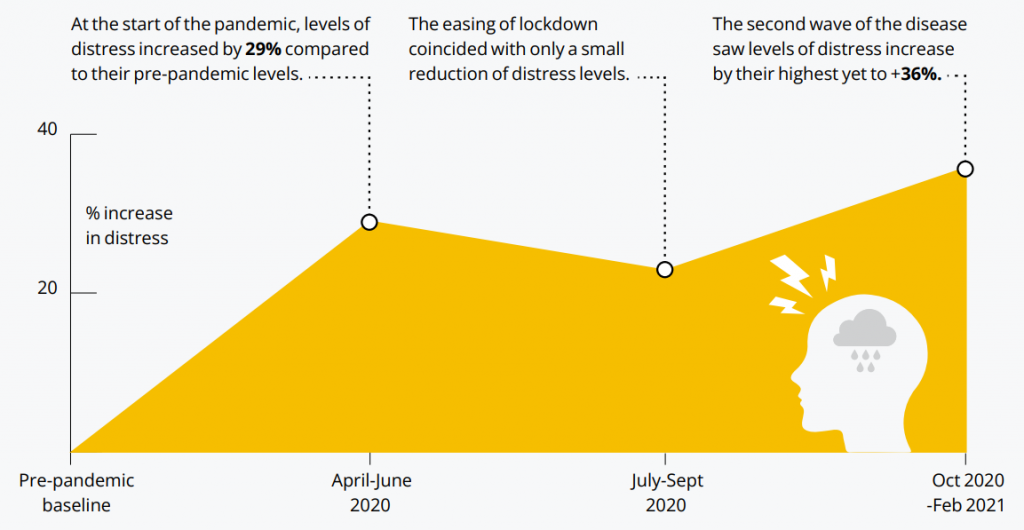TwinsUK is one of many population cohorts that form the National Core Studies Longitudinal Health and Well-being. The aim of the National Core Studies Longitudinal Health and Well-being programme is to understand the health, social and economic impacts of the COVID-19 pandemic by analysing established population cohorts, as well as national electronic health records to guide implementation of, and changes, to government policies.
One study looked at how mental health of the UK population has evolved across the COVID-19 pandemic. The study looked at how mental health changed since before the pandemic, how experiences of mental health varied under different lockdown measures, and how the pandemic impacted already existing mental health inequalities. To address these questions, a coordinated analysis of data was carried out from 11 longitudinal population-based studies, including data from TwinsUK’s regular COVID-19 questionnaires sent to twins (known as our COPE study). The team assessed the prevalence of poor mental health using measures of psychological distress within each cohort at 4 time periods: pre-pandemic (first lockdown Spring 2020); easing of lockdown (summer 2020) and then during a subsequent of lockdown at the end of 2020 and start of 2021.
The info-graphics below show the key results:










